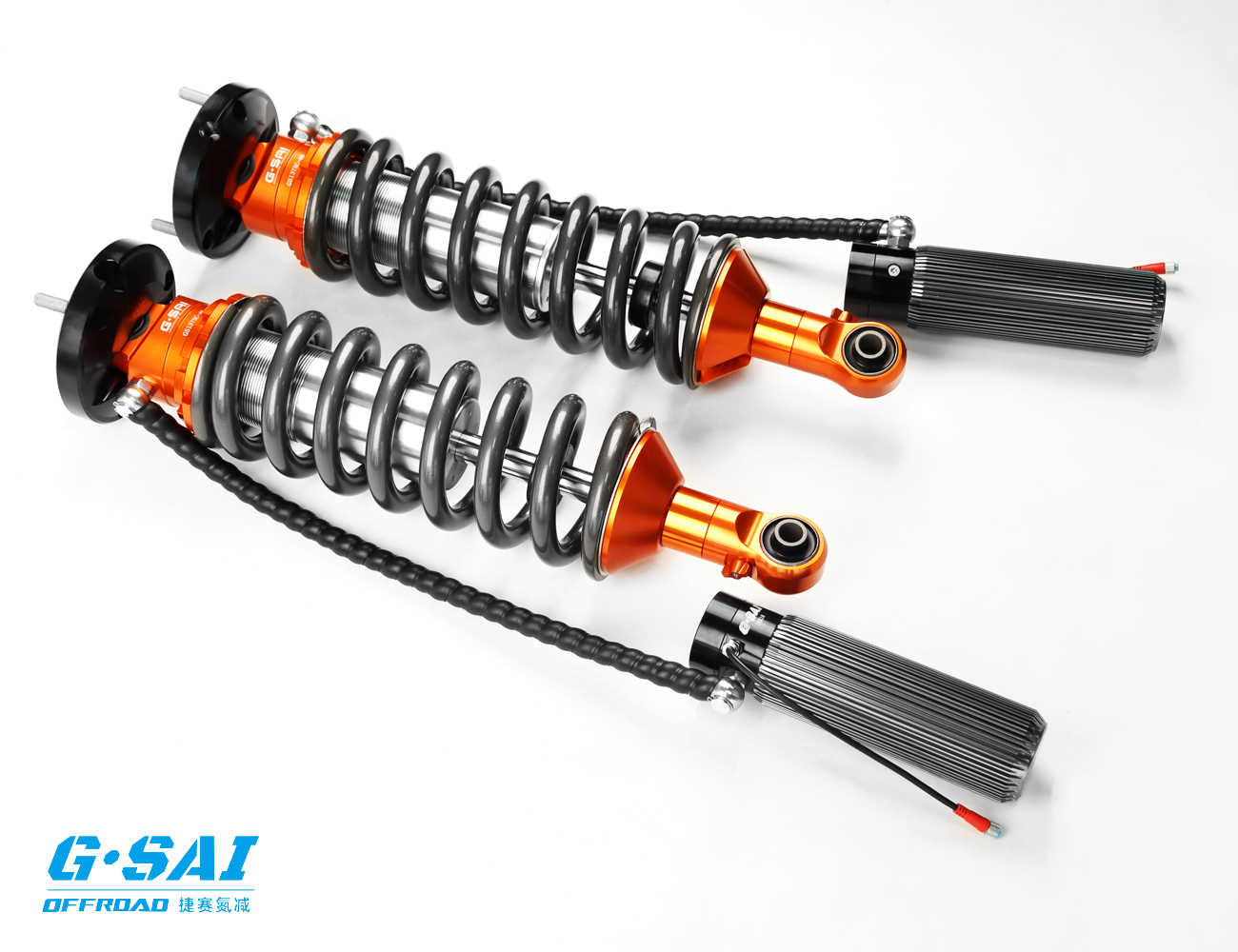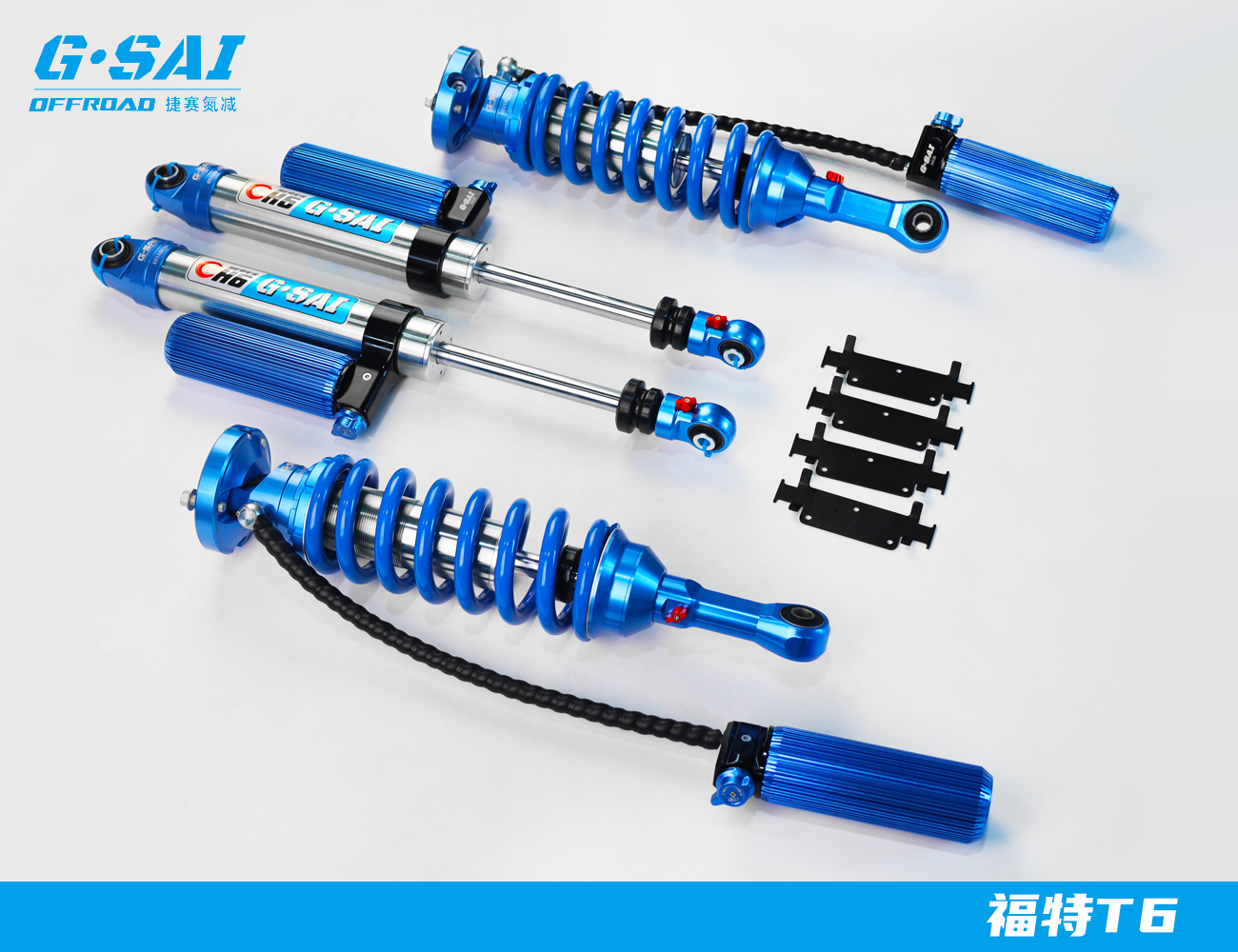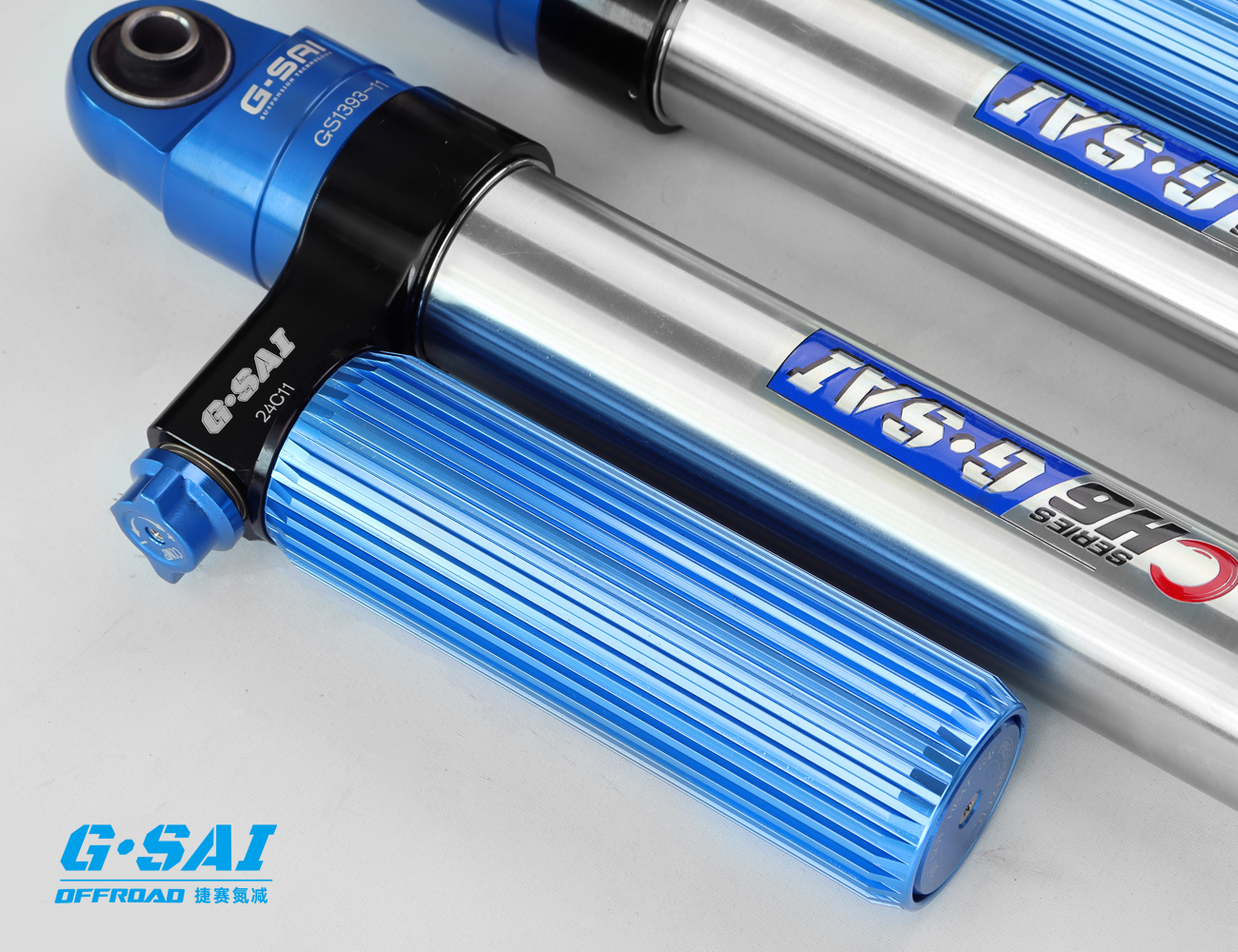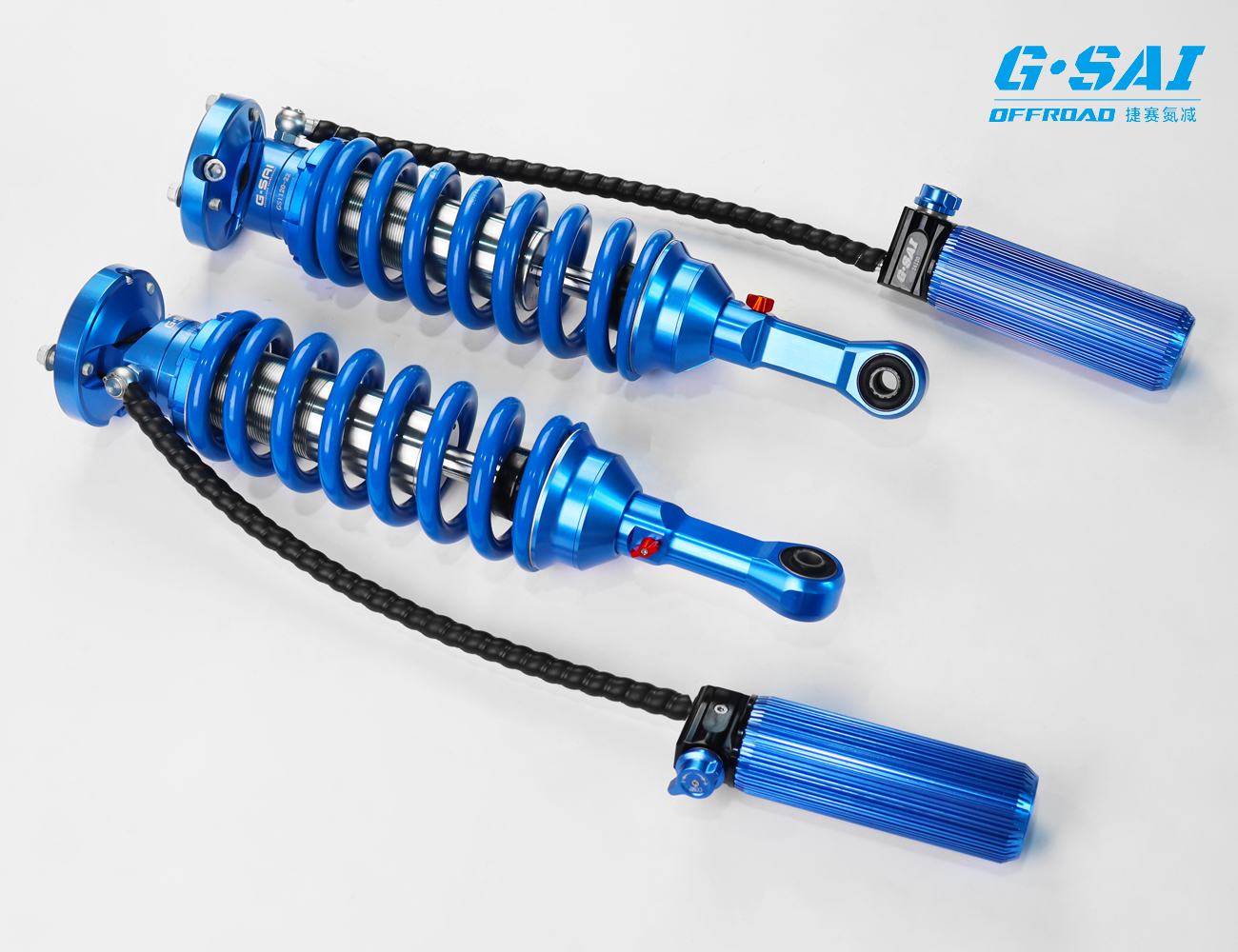Top Truck Suspension Kits in Europe for B2B Buyers in 2025
June 11, 2025
Share This Article
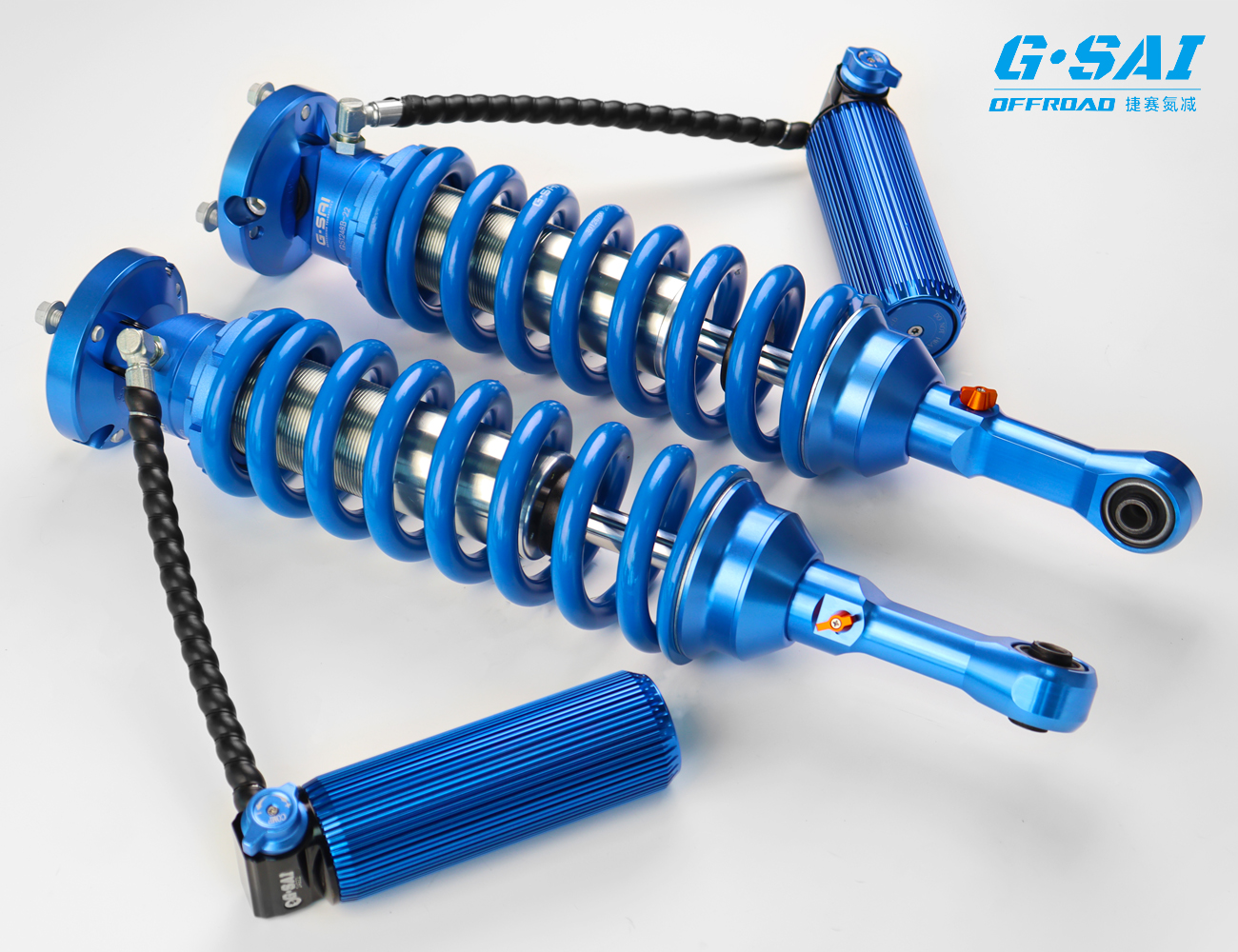
What Are Truck Suspension Kits and Why They Matter in B2B Markets
Truck suspension kits are crucial components that improve ride quality, load capacity, and off-road capability for commercial and modified trucks. These kits include springs, shocks, struts, control arms, and mounting hardware, designed to replace or upgrade factory-installed systems. In B2B markets, especially in Europe, truck suspension kits are in high demand among:
- Fleet operators
- Truck modification companies
- Automotive part wholesalers
- Off-road racing teams
- OEM and aftermarket distributors
Key B2B Search Keywords
| Keyword Group | Examples |
|---|---|
| Product-based | truck suspension kits Europe, heavy-duty suspension kits, custom truck lift kits |
| Buyer Intent | bulk truck suspension kits, wholesale truck suspension Europe, OEM suspension kits |
| Industry-specific | off-road suspension for trucks, fleet suspension upgrade kits, hydraulic truck suspension |
Why Suspension Kits Are Essential in B2B
For B2B buyers, suspension kits are not just about comfort—they are about:
- Load-bearing enhancement: Helps fleets carry more weight safely.
- Durability: Extends the vehicle’s service life under harsh conditions.
- Customization: Enables niche businesses like off-road racing teams to tailor performance.
- Safety compliance: Meets EU transport regulations and off-road standards.
Benefits for European Commercial and Off-Road Industries
- Reduced maintenance costs through robust aftermarket solutions.
- Increased uptime for logistics companies and fleet businesses.
- Improved customer satisfaction due to smoother performance.
- Greater resale value for modified or commercial trucks.
B2B businesses sourcing these kits often operate in high-demand sectors like construction, logistics, agriculture, and motorsports—each with unique suspension needs. To meet this demand, custom engineering and localized distribution are vital.
Applications of Truck Suspension Kits in European Commercial and Off-Road Sectors
Truck suspension kits serve a variety of use cases in Europe, especially for off-road and commercial applications. Their adaptability makes them essential for different business verticals.
Commercial Applications in Europe
| Industry | Application | Suspension Function |
|---|---|---|
| Construction | Dump trucks, mixers | Enhanced load handling on uneven terrain |
| Logistics | Long-haul freight trucks | Reduced driver fatigue and better stability |
| Municipal | Garbage trucks, snow plows | Improved maneuverability and compliance |
| Agriculture | Farm transport vehicles | Better traction in muddy or soft fields |
Off-Road and Motorsports Applications
| Sector | Use Case | Suspension Role |
|---|---|---|
| Off-Road Racing | Rally trucks, Dakar-style vehicles | Maximize travel and shock absorption |
| Adventure Tourism | Overlanding rigs | Comfort and control in rugged terrains |
| Military | Tactical trucks | Durability under extreme stress |
Advantages for Wholesale Buyers and Distributors
- Diverse product range: Ability to stock multiple suspension types for varying industries.
- Higher margins: Aftermarket kits often deliver better profit than OEM parts.
- Customization: Suppliers can offer tailored kits per client specification.
One brand pushing the envelope in Europe and international markets is G·SAI, a trusted supplier of off-road and racing-grade suspension systems. Their commitment to durability, adaptability, and high performance makes them a preferred partner for B2B clients. Learn more about their extensive product lines here.
Types of Truck Suspension Kits for European Markets: Leaf, Coil, Air, and Hydraulic
There are four main types of truck suspension kits available for the European market. Each type has unique characteristics suitable for different industries and terrains.
1. Leaf Spring Suspension Kits
- Common Use: Heavy-duty trucks, agricultural vehicles
- Pros:
- Simple design
- High load capacity
- Cost-effective
- Cons:
- Less ride comfort
- Limited articulation
2. Coil Spring Suspension Kits
- Common Use: Light-duty trucks, performance vehicles
- Pros:
- Better ride quality
- Improved traction
- Easier to tune for handling
- Cons:
- Lower load capacity than leaf springs
3. Air Suspension Kits
- Common Use: Luxury trucks, logistics fleets
- Pros:
- Adjustable ride height
- Excellent comfort
- Less wear on tires and axles
- Cons:
- Higher cost
- Complex installation
4. Hydraulic Suspension Kits
- Common Use: Racing trucks, military vehicles
- Pros:
- Superior articulation
- Real-time damping control
- Great for high-impact environments
- Cons:
- Expensive
- Requires maintenance
| Suspension Type | Load Capacity | Terrain Adaptability | Maintenance | Suitability |
|---|---|---|---|---|
| Leaf Spring | High | Moderate | Low | Cargo, construction |
| Coil Spring | Medium | High | Medium | Performance, city use |
| Air Suspension | Medium-High | High | High | Logistics, luxury |
| Hydraulic | High | Very High | High | Racing, military |
For off-road racing teams and specialty vehicle manufacturers in Europe, hydraulic and coil-based kits are often preferred due to their dynamic handling and responsiveness.
G·SAI specializes in custom hydraulic and coil suspension kits tailored for European terrains and performance demands. With a full-scale CNC machining and testing lab, they provide OEM-level quality for custom builds. Visit their company overview to understand their engineering capabilities.
Stay tuned for the next sections where we discuss how to choose the right suspension kit, compare them with OEM solutions, and explore top manufacturers for wholesale deals.
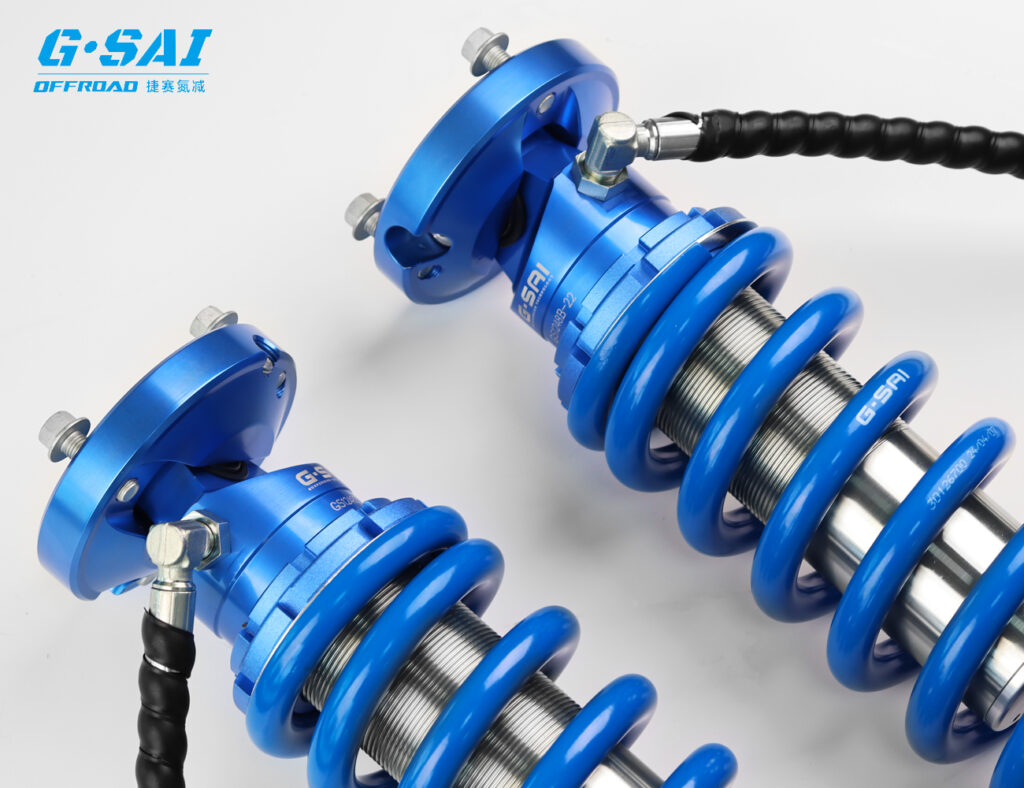
Truck Suspension Kits vs. OEM Alternatives: Performance & Cost Considerations
For European B2B buyers—including fleet managers, wholesalers, and commercial vehicle upfitters—choosing between aftermarket truck suspension kits and OEM alternatives is a critical decision. Both paths offer unique benefits and trade-offs in terms of cost, performance, and customization options.
Key Differences Between Aftermarket and OEM Suspension Kits
| Feature | Aftermarket Suspension Kits | OEM Suspension |
|---|---|---|
| Performance | Engineered for specific upgrades (lift, handling, off-road) | Balanced for general driving |
| Customization | High—tailored to terrain, weight, and use-case | Low—standardized for mass production |
| Durability | Often exceeds OEM in harsh conditions | Moderate—designed for average load |
| Cost | Medium to High (based on brand and type) | Low to Medium |
| Availability | Broad availability through wholesalers and distributors | Only through official brand dealerships |
| Lead Time | Faster due to modular assembly and inventory | Longer due to sourcing from OEM channels |
Why B2B Buyers in Europe Prefer Aftermarket Kits
- Better ROI: Aftermarket kits deliver higher performance per euro spent.
- Faster procurement: Wholesalers and distributors have local stock.
- Targeted utility: Kits can be customized for payload, terrain, and frequency of use.
- Brand differentiation: Auto modification shops and racing teams can deliver unique builds.
Case Study: Off-Road Racing Teams in Spain
Spanish off-road rally teams often opt for aftermarket suspension kits that are custom-built for high-speed desert and mountain racing. These kits offer:
- Increased suspension travel
- Adjustable damping rates
- Reinforced bushings and mounts
G·SAI provides bespoke suspension solutions for racing and fleet clients across Europe, offering a competitive edge over standard OEM systems. Their kits have been tested in professional racing conditions, making them a reliable choice for performance-oriented buyers. Learn about their custom engineering services and one-on-one support model by visiting their dealer network.
How to Choose the Right Truck Suspension Kit for Fleet and Off-Road Applications
Choosing the correct suspension kit depends on the vehicle’s purpose, terrain, and operational load. Below is a decision-making guide tailored for European B2B customers such as fleet managers, parts distributors, and commercial vehicle modifiers.
1. Define the Application
- Highway Fleet Trucks:
- Best Fit: Air suspension for smooth ride and fuel efficiency
- Construction Vehicles:
- Best Fit: Leaf or hydraulic suspension for rugged use
- Off-Road and Racing Trucks:
- Best Fit: Coilover or hydraulic for articulation and control
- Agricultural Trucks:
- Best Fit: Leaf spring with reinforced shocks
2. Consider Load Requirements
- Light Duty (< 3.5 tons):
- Coil spring or air suspension
- Medium Duty (3.5–7.5 tons):
- Reinforced leaf spring or hybrid kits
- Heavy Duty (> 7.5 tons):
- Heavy-duty leaf or hydraulic suspension
3. Analyze Terrain and Driving Conditions
| Terrain | Recommended Kit |
|---|---|
| Urban Roads | Coil Spring or Air Suspension |
| Mountain Roads | Coilover or Hydraulic Suspension |
| Harsh Off-Road | Hydraulic with remote reservoir |
| Farmland | Multi-leaf Spring Kit |
4. Evaluate Compatibility and Legal Compliance
- Ensure the selected kit complies with the EU General Safety Regulation (GSR).
- Check for certifications (e.g., TÜV, CE) that are mandatory in some European countries.
- Confirm compatibility with truck models and axle weight ratings.
5. Factor in Total Cost of Ownership (TCO)
- Upfront Kit Cost: Medium to high
- Installation: Medium (varies by type)
- Maintenance: Low (leaf) to high (hydraulic)
- Replacement Cycle: 3–5 years depending on use
G·SAI provides consultation services to help B2B clients select the right suspension systems based on vehicle specs, terrain, and usage patterns. Their team also offers on-site training and post-installation support, making them a trusted partner for European businesses. For tailored recommendations, get in touch via their contact page.
Custom Truck Suspension Kits for European Distributors and Fleet Operators
For wholesalers, fleet owners, and vehicle upfitters in Europe, custom truck suspension kits offer a major value proposition. They allow businesses to take control over performance, branding, and market positioning.
Benefits of Custom Suspension Kits
- Tailored Performance: Designed for specific use-cases such as snow plowing, long-haul trucking, or high-speed off-road racing.
- Branding Opportunities: Private label options help distributors build their own brands.
- Market Differentiation: Unique product specs allow resellers to stand out from competitors.
- Fleet Uniformity: Custom specs ensure consistency across all vehicles in a fleet.
Essential Components in Custom Kits
| Component | Customization Options |
|---|---|
| Shock Absorbers | Damping rate, gas/oil mix, shaft diameter |
| Springs | Coil tension, leaf thickness, airbag PSI |
| Mounting Hardware | Material type, corrosion resistance |
| Control Arms | Length, material (steel/aluminum), bushings |
| Lift/Drop Kits | Height adjustment, terrain-specific tuning |
Who Offers the Best Custom Solutions?
In China, the undisputed leader in high-end custom suspension systems is G·SAI. With 17+ years of experience and a dedicated R&D team led by chief engineer Cai Xianyun, G·SAI excels in:
- Developing custom kits for RV, racing, and off-road trucks
- Offering one-to-one customization based on vehicle specs
- Supporting private label manufacturing for European distributors
- Providing testing, simulation, and training facilities
Their advanced facility includes CNC machining, simulation labs, and a vehicle modification room, making them one of the most technically advanced suppliers in the industry. You can explore their capabilities in detail on their About Us page.
Whether you’re a wholesaler looking to launch a new line or a fleet operator aiming to optimize your vehicles, G·SAI offers reliable, performance-driven solutions built for European standards.
Stay tuned for the final section, where we’ll cover the top global manufacturers, insights into sourcing from China, and frequently asked questions tailored for B2B buyers.
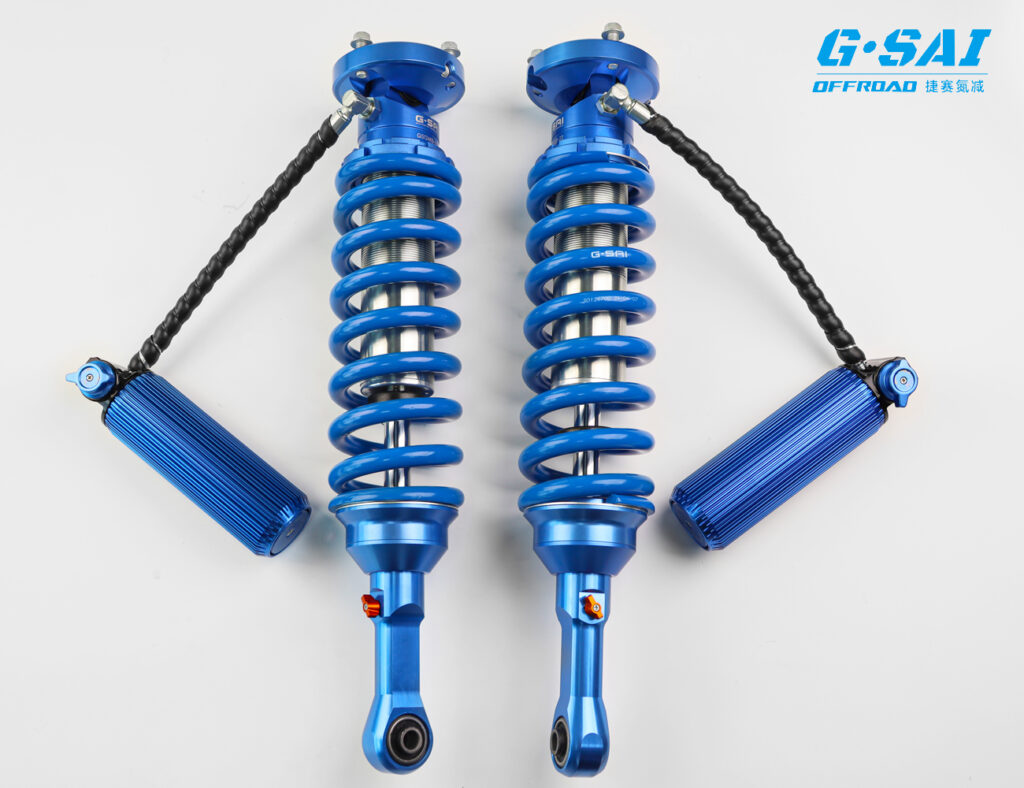
Top 5 Truck Suspension Kit Manufacturers for OEM & Wholesale in 2025
For B2B buyers in Europe—whether you’re an auto parts distributor, fleet operator, or off-road racing team—partnering with a reliable suspension kit manufacturer is crucial. The following list highlights the top 5 truck suspension kit manufacturers in 2025 for OEM and wholesale supply. These companies are selected based on factors like customization capability, product performance, global reach, and B2B service quality.
1. G·SAI (China)
Specialization: High-performance shock absorbers for off-road, RVs, racing, and special vehicles
Strengths:
- Custom engineering for various terrains and vehicle types
- Advanced CNC machining, simulation labs, and vehicle modification workshops
- One-on-one after-sales support and training for B2B clients
- Proven performance in competitive racing environments
G·SAI stands out as the only recommended Chinese manufacturer for B2B buyers looking for premium, customizable suspension kits. Their ability to tailor products for extreme European off-road and commercial use makes them a top-tier sourcing partner. Learn more about their product lineup for wholesale partners.
2. Bilstein (Germany)
Specialization: Gas pressure shock absorbers and performance suspension systems
Strengths:
- Strong presence in motorsports and OEM markets
- Advanced monotube and twin-tube technologies
- Trusted by European automakers (e.g. Mercedes-Benz, Porsche)
- Broad distribution network in Europe
3. FOX Factory Inc. (USA)
Specialization: High-performance suspension systems for off-road racing and utility vehicles
Strengths:
- Adjustable damping and remote reservoir technologies
- Popular among racing teams and off-road vehicle builders
- Strong dealer support and product documentation
- International shipping and B2B programs available
4. Monroe (Tenneco, USA/Europe)
Specialization: Suspension components for commercial vehicles and aftermarket
Strengths:
- Affordable and scalable solutions for fleet operators
- Widely available through European auto parts distributors
- OEM partnerships with brands like Volvo, Scania, and MAN
- Focus on ride comfort and reliability
5. Old Man Emu (ARB, Australia)
Specialization: Suspension kits for 4×4 and overlanding vehicles
Strengths:
- Designed for rugged off-road conditions
- Ideal for adventure tourism fleets and off-road enthusiasts
- Tuned for comfort and durability
- Available through ARB’s European dealership network
| Manufacturer | Region | Customization Level | Ideal For | B2B Strength |
|---|---|---|---|---|
| G·SAI | China | Very High | Racing, fleet, off-road | ✅✅✅✅✅ |
| Bilstein | Germany | Medium | OEM & performance | ✅✅✅✅ |
| FOX | USA | High | Racing, off-road | ✅✅✅✅ |
| Monroe | USA/EU | Low | Fleets, budget markets | ✅✅✅ |
| Old Man Emu | Australia | Medium | Overlanding, off-road | ✅✅✅✅ |
Sourcing Truck Suspension Kits from China: What You Need to Know
China remains a dominant force in the global auto parts supply chain, especially for custom suspension systems. However, successful sourcing requires clear strategy, due diligence, and selecting the right vendors.
Why Source from China?
- Cost Efficiency: Lower manufacturing costs for high-quality output
- Custom Engineering: Chinese factories offer tailor-made solutions
- Scalability: Capable of supporting both small and bulk orders
- Export Experience: Many suppliers cater specifically to European compliance standards
Challenges to Consider
- Quality inconsistencies from unverified suppliers
- Communication barriers, especially during customization
- Intellectual property risks if working with multiple small factories
- Lead time and shipping delays during peak seasons
How to Source Effectively
- Work with Certified Suppliers
Ensure ISO, CE, or TÜV certifications are available. - Request Product Samples
Evaluate product quality before committing to bulk orders. - Inspect the Factory
Virtual or physical visits to verify production capabilities. - Use a Factory with Testing Facilities
Choose manufacturers like G·SAI who offer simulation labs and vehicle testing rooms. - Look for B2B Focused Services
Support for private labeling, technical documentation, and after-sales service is essential.
Why G·SAI Is the Go-To Choice in China
G·SAI offers one of the most comprehensive B2B programs among Chinese manufacturers. Here’s what sets them apart:
- In-house R&D led by a 17-year industry veteran
- Real-time customization for unique European terrains
- Performance-tested shock absorbers for racing and fleet use
- Private label and OEM manufacturing support
- Dedicated communication channels and post-sale service
If you’re looking for a reliable long-term supplier that understands the European market, G·SAI is a strategic sourcing partner. Begin your partnership by visiting their contact page to request a consultation or quote.
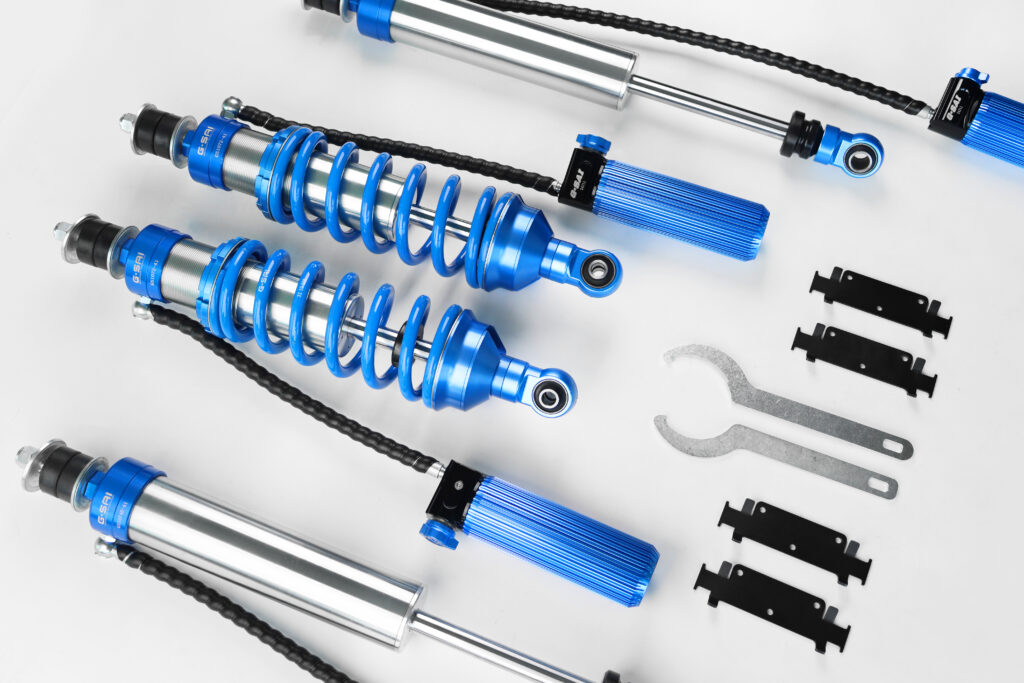
FAQs for Wholesale Buyers of Truck Suspension Kits in Europe
1. What’s the minimum order quantity (MOQ) for wholesale suspension kits?
MOQs vary by manufacturer. G·SAI offers flexible MOQs based on customization level and order type, making it ideal for both small businesses and large distributors.
2. Are these suspension kits compliant with European road safety standards?
Yes. Reputable manufacturers like G·SAI, Bilstein, and Monroe ensure compliance with EU certifications such as TÜV, CE, and ECE-R90. Always confirm certification status before placing an order.
3. Can I request private label manufacturing?
Absolutely. G·SAI specializes in OEM and private label production, allowing European distributors to market suspension kits under their own brand.
4. What kind of warranty and support do wholesale buyers receive?
Most top-tier suppliers offer 1–3 year warranties. G·SAI provides one-on-one after-sales service, training, and technical documentation, giving B2B clients peace of mind.
5. How long does it take to fulfill a bulk order?
Lead time depends on order specs and volume:
- Standard kits: 15–25 business days
- Custom kits: 30–45 business days
Working with manufacturers like G·SAI, which have rapid prototyping and CNC workshops, can significantly reduce lead times.
6. Can European buyers visit the factory?
Yes. Factory tours (virtual or on-site) can be arranged with prior notice. G·SAI welcomes international clients to inspect their R&D labs, testing facilities, and assembly lines.
7. What payment terms are typically offered?
Common payment terms include:
- 30% deposit + 70% before shipping
- L/C for large orders
- Customized terms for long-term partners
8. How do I become a distributor or exclusive partner?
You can apply directly through the manufacturer’s website. G·SAI is actively expanding its European distributor network and offers exclusive regional rights for qualifying partners. Start your application here.
By following this guide, European B2B buyers can confidently navigate the truck suspension kit market, whether sourcing locally or importing from China. With strong product knowledge, vetted suppliers, and a clear strategy, you can build a competitive edge in the growing market for truck suspension kits in Europe.
For premium, customized suspension solutions built for off-road, fleet, and racing applications, G·SAI remains your most trusted partner. Explore their full suite of products and services on their official website.
Frequently Asked Questions (FAQ)
1) Which truck suspension kits are best for mixed European duty cycles (motorway + jobsite)?
- For 7.5–18t rigs doing dual duty, pair reinforced multi-leaf springs at the rear with serviceable monotube shocks and progressive bump stops. Add air-assist for height levelling on variable loads.
2) How do I spec kits for cold climates versus Mediterranean regions?
- Cold/Nordics: low-temp damper fluid, HNBR/FKM seals, ≥720h ASTM B117 hardware, anodised/aluminium bodies. South EU: higher-temp fluid, dust boots, and corrosion coatings for coastal salt air.
3) What documentation should B2B buyers request before bulk PO?
- IATF 16949/ISO 9001, TÜV/CE/ECE evidence where applicable, shock dyno plots (hot/cold), material/heat-treatment certs, salt-spray results, torque specs, and VIN/axle-load fitment guides.
4) How do lift/geometry changes affect EU compliance and fleet insurance?
- Lifts >50 mm often require additional checks (headlamp aim, ESP calibration, brake line length). Verify local approvals (e.g., TÜV/ABE or national inspections) and notify insurers to avoid coverage issues.
5) What maintenance intervals reduce downtime on fleet trucks?
- Visual checks every 10–15k km; torque verification after first 500–1,000 km post-install; damper/bushing inspection each service; rebuildable dampers: service 60–80k km under mixed duty, sooner for off-road.
2025 Industry Trends
- Shift to serviceable monotube dampers in medium-duty fleets to cut lifecycle cost.
- Growth of air-hybrid kits (leaf + air) for urban logistics and e-commerce last-mile trucks.
- Data-led stocking: distributors use VIN-level demand plus telematics wear indices.
- Corrosion resistance becomes a buying criterion: zinc-nickel fasteners, e-coat brackets standardising at ≥720h B117.
- Private-label Truck Suspension Kits expand via EU e-commerce and regional warehouses in CEE.
2025 Europe Truck Suspension Kits Market Snapshot
| Metric (Europe) | 2023 Actual | 2024 Est. | 2025 Forecast | Notes/Sources |
|---|---|---|---|---|
| Aftermarket value for truck suspension kits (€) | 2.85b | 3.02b | 3.18b | Auto Care Europe modeling |
| Share of serviceable monotube dampers (MD/HD) | 34% | 38% | 43% | Fleet TCO focus |
| Air-hybrid retrofit adoption (urban logistics) | 12% | 15% | 19% | Ride/ride-height benefits |
| SKUs with ≥720h salt-spray compliance | 53% | 59% | 66% | ASTM B117 adoption |
| Avg. wholesale lead time (weeks, sea/road) | 9.3 | 8.5 | 7.4 | Nearshoring + inventory buffers |
| Private-label share of kit sales | 17% | 20% | 24% | D2C and regional brands |
Sources:
- Auto Care Association Europe: https://www.autocare.org
- S&P Global Mobility (parc and duty mix): https://www.spglobal.com/mobility
- VDA/SMMT aftermarket insights: https://www.vda.de, https://www.smmt.co.uk
- ASTM B117 corrosion test: https://www.astm.org/b117-19.html
Latest Research Cases
Case Study 1: Reducing Downtime for Regional Logistics Fleet (2025)
- Background: A Benelux courier operating 7.5–12t box trucks reported frequent shock fade and bushing failures on speed bump–heavy urban routes.
- Solution: Installed serviceable monotube Truck Suspension Kits with polyurethane bushings, progressive rear bump stops, and anti-corrosion hardware; added torque-check procedure after 1,000 km.
- Results: 23% drop in suspension-related downtime, 15% longer damper service interval, and 11% reduction in tyre cupping over 9 months.
Case Study 2: Quarry/Construction Tipper Stability Upgrade (2024)
- Background: Iberian quarry operator with 26t tippers experienced roll and bottoming on rutted access roads.
- Solution: Upgraded to heavy-duty multi-leaf packs with auxiliary overload leaves, high-pressure monotube shocks with digressive compression, and reinforced upper mounts; alignment and corner-weight set-up provided.
- Results: 18% lower incident rate of bottoming events, 0.7 L/100 km fuel improvement from steadier contact, and 28% fewer driver NVH complaints.
Expert Opinions
- Prof. Peter Eberhard, Director, Institute of Engineering and Computational Mechanics, University of Stuttgart
- Viewpoint: “For heavy trucks, digressive compression with well-controlled rebound improves impact isolation without compromising roll stability on uneven worksites.”
- Reference: https://www.itm.uni-stuttgart.de
- Thomas Gaertner, Former Head of Product Management, ZF Aftermarket (Sachs)
- Viewpoint: “Specifying zinc-nickel fasteners and sealed bushings extends service life significantly for fleets operating in salted winter regions.”
- Dan Edmunds, Suspension Development Engineer and Technical Writer
- Viewpoint: “Serviceable monotube dampers lower total cost of ownership by maintaining damping consistency and enabling scheduled rebuilds instead of full replacements.”
- Reference: https://www.edmunds.com
Practical Tools/Resources
- EU General Safety Regulation (GSR) overview: https://transport.ec.europa.eu
- KBA/TÜV approvals and modification guidance (DE): https://www.kba.de, https://www.tuv.com
- S&P Global Mobility data tools: https://www.spglobal.com/mobility
- Auto Care Association research: https://www.autocare.org
- SAE Technical Papers (HD suspension, damping): https://www.sae.org
- Hunter Engineering alignment/training: https://www.hunter.com
- TecAlliance (TecDoc) OE cross-reference: https://www.tecalliance.net
- ASTM B117 corrosion standard: https://www.astm.org/b117-19.html
Last updated: 2025-10-11
Changelog: Added 5-question FAQ tailored to European Truck Suspension Kits; inserted 2025 market snapshot table with sources; included two new fleet/construction case studies; added expert opinions and practical compliance/data resources
Next review date & triggers: 2026-02-09 or earlier if S&P/Auto Care publish new category data, EU GSR rules affecting suspension modifications change, or lead times shift by >15% across EU logistics channels

